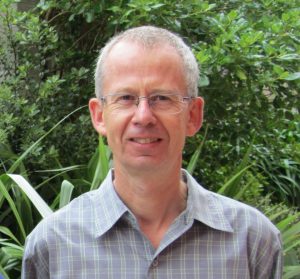The director of The Nathaniel Centre for Bioethics — Te Kupenga, Dr John Kleinsman, has stated his opposition to a bill that seeks to
provide powers to set up safe areas around specific abortion facilities on a case-by-case basis.

Dr John Kleinsman, Director of Te Kupenga -The Nathaniel Centre and bioethics researcher.
In a submission to Parliament’s Health Select Committee on the Contraception, Sterilisation and Abortion (Safe Areas) Amendment
Bill from MP Louisa Wall, Dr Kleinsman said that the basis for any law change should be gaps or deficiencies in already existing laws.
“We wish to remind the committee that, in 2018, the Law Commission noted in its ministerial briefing paper that there are already several laws capable of addressing intimidating or anti-social behaviour at places where abortions occur,” he stated.
Dr Kleinsman also referred to a 2019 review by the Attorney-General into the then-Abortion Legislation Bill that stated, “there is always a degree of discomfort for some that follows from the public airing of controversial views — a discomfort without which we would never be able to tolerate the free expression of ideas that is a central part of any
democracy”.
Commenting on this, Dr Kleinsman stated: “In which case, the very fact that the peaceful presence of bystanders outside of an abortion clinic will create a level of emotional distress for some is not, of itself, a sufficient test for justifying the further limits to freedom of expression that the amendment in question would bring about.”
Dr Kleinsman noted that a forecast escalation in demonstration activity, of a widespread and intrusive nature, following the decriminalisation of abortion, had not, in fact happened.
This highlighted “once again, that there is no demonstrable need for the proposed amendment”.
In his submission, Dr Kleinsman stated his organisation’s acceptance “that women seeking an abortion should not be subject to intimidation, including verbal harassment, about their decision”. He noted the right of women seeking an abortion to have their dignity protected.
But his submission also argued for upholding the “right of people to freely and publicly express their views about abortion in a peaceful and respectful way in order to highlight that there are alternatives to having an abortion”.
Dr Kleinsman acknowledged that the bill seeks to balance these rights.
Nonetheless, “our view is that the proposed amendment is unnecessary, and would ultimately amount to an unjustified limitation on the freedom of people to express themselves publicly and peacefully on a matter as important as abortion”.
Dr Kleinsman noted that the safe zones envisaged by the bill would likely allow bystanders to continue to respectfully express their opposition to abortion, as long they did so without attempting to communicate with either abortion service clients or service providers.
“However, we have reservations about the ability of a CSA Act that incorporated the proposed amendment to fairly demarcate between
lawful and unlawful behaviour,” he added.
Complaints
Over the two years from 2019 to January, 2021, 17 of the 20 district health boards in New Zealand have no record of either verbal or
written complaints of intimidation or harassment of women accessing abortion at their facilities, and they have had no complaints from staff accessing these facilities, Right to Life has discovered.
This information was given in response to an Official Information Act request from Right to Life. Of the three DHBs that did not respond, West Coast, Whanganui and Tairawhiti, the first two named do not perform abortions and refer women seeking them to another DHB, Right to Life stated.
“This response is highly significant,” a post by Ken Orr on Right to Life’s website stated. “The response covers a two-year
period during which an estimated 26,000 abortions were performed in DHB facilities or in facilities of private providers under contract to DHBs,” Mr Orr said. “DHBs log all verbal and written complaints. They advise that no verbal or written complaints were
received from an estimated 26,000 women who had an abortion during the two years under review. There [is] also no record of any complaints being received from staff employed at abortion facilities during the same two-year period under review.”
“It is contended that, if there were no complaints, either verbal or in writing, from these women seeking an abortion, . . .there was in
fact no intimidation or harassment of these women,” Mr Orr added.
Right to Life stated that it believes that the Contraception, Sterilisation and Abortion (Safe Areas) Amendment Bill seeks to address a
problem that does not exist.
Mr Orr’s post added that the OIA information from DHBs had been forwarded to the Health Select Committee, with a request that it report back to the House that the bill not proceed.
Reader Interactions